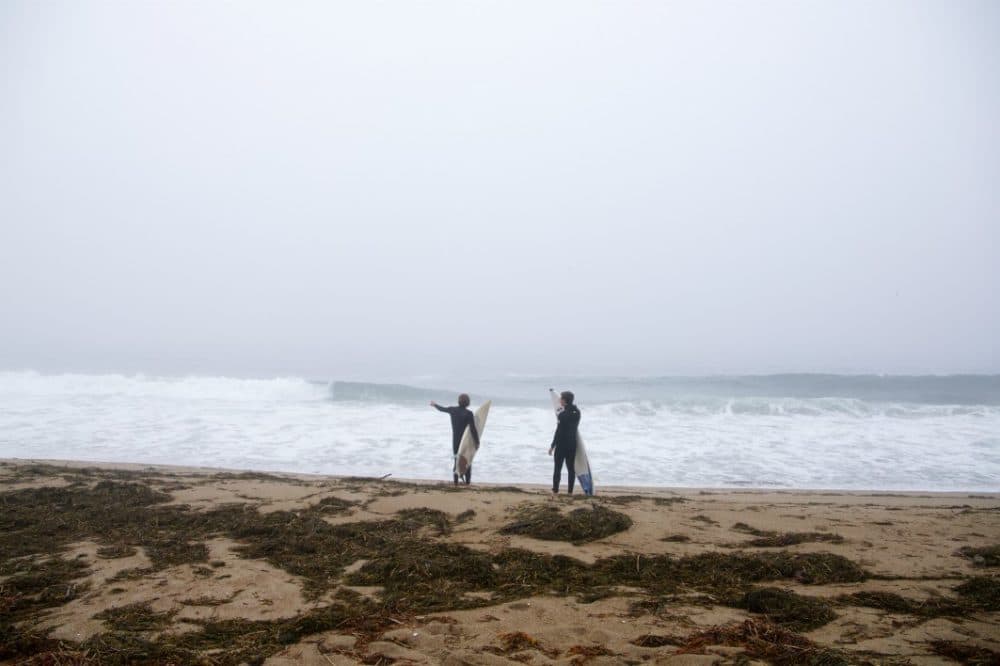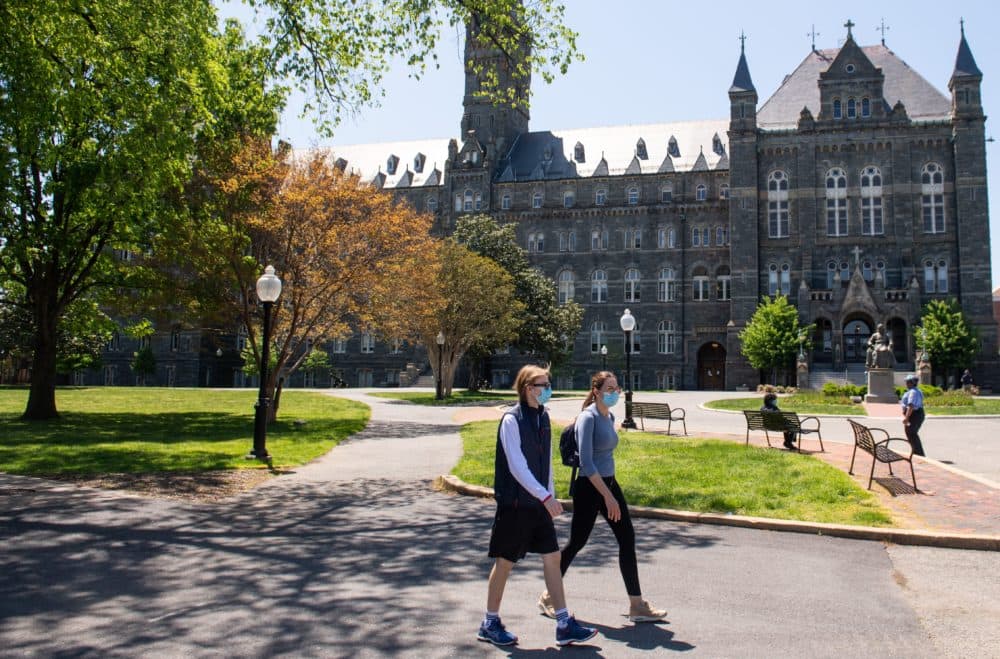Advertisement
Commentary
Surfers Learn How To Plan For Uncertainty. It's A Good Lesson For Life During A Pandemic

On any given weekday during my first year of college, my alarm would go off at 4:30 a.m. I’d await a text from John, who’d grown up surfing the beaches not far from our school’s campus in coastal Maine. He would assess the waves. If they were good, he would text something like, “could be fun” and I would run to the bathroom, wrestle on my 5 mm thick wetsuit, meet John in the hallway, and make the pre-sunrise, often freezing walk to his car. We’d be back from the beach before my 9:30 class. Other mornings, he’d text back something like, “Checked the buoy. Not worth it,” and I’d roll over and try to sleep.
Three years later, it’s the summer before our senior year. I’m living close to campus, near the ocean, but in a much different world — and nearly alone. John and most of my classmates are home with their families. The pandemic has shuttered the dorms, libraries and academic buildings, turning our normally bustling campus into a ghost town.
Across the country, it is like this: colleges in limbo, students in limbo from the lives they planned. I live just across the street from campus, but I rarely visit. Instead, I’ve spent my time monitoring the ocean, the way I remember John doing, checking different stats and reports in hopes of finding good waves.

There are many myths about surfing — that it’s best in summer is perhaps the greatest one. But equally prevalent is the myth that surfing can be planned. Waves can be studied and forecasts can be made, sure. There’s a laundry list of stats to consult — wind strength, wind direction, swell direction, swell height, wave height, wave period — every surfer has their own way of piecing the info together to decide when and where to paddle out. Serious surfers are also amateur meteorologists. Their methods are calculated, meticulous, backed by science — and they’re often useless. Anything from a slight change of wind at the beach to the path of an indifferent storm hundreds of miles off the coast can turn clean, surfable waves into foamy slop, or worse, total flatline.
I think of this often nowadays — how surfers meticulously plan for uncertainty, but ultimately accept it as given.
Any college planning the year ahead is forced to make a similar reckoning. Bowdoin College, my school, waited until very recently to announce its plan. After several empty updates and an abandoned release date, the long-awaited plan for the fall landed in our inboxes one Monday morning. Almost all classes will be remote, and only incoming first-year students will be allowed on campus. According to a tracker from The Chronicle of Higher Education, about 100 colleges are planning on fully remote classes.
I think of this often nowadays -- how surfers meticulously plan for uncertainty, but ultimately accept it as given.
Going online may look like certainty, but it’s not: the uncertainty has just been passed on to students. Existing international students are safe (for now), though first-year international students are barred from entering the U.S. For many domestic students, especially low-income and first-generation students, returning home means losing the stability of on-campus life. When you can take class from anywhere, the question for many students is where do I go?
At the same time, hundreds of thousands of students are still in limbo as they wait for their colleges to announce a plan. More than 900 colleges are planning to invite students back for at least some in-person classes. These colleges have cited expanded housing, takeout meal plans and rigorous testing protocols to make in-person education conceivable in a pandemic.
But if a pandemic has taught us anything, it’s that many of these plans could become impossible in much less time than it took to come up with them. For colleges like the University of Southern California, which recently did an about-face on its plan to bring students back to campus, it’s already the case. These plans are meticulous. They’re backed by science. And they’re nowhere close to certain.
Advertisement
As I write, the next set of good waves might come sooner than expected. July in the northeast is usually predictable and flat, but July 2020 is, fittingly, off to an unexpected start. A tropical storm, named Dolly, is making its way to the North Atlantic. It’s one of the earliest tropical storms on record — another reminder of our increasingly uncertain world — and surfers in Maine are poised to reap the benefits of a rare, near-perfect summer swell.
With John at home, I’m left to decipher the stats alone. The forecast says 4 to 6 feet, a slight breeze from the north, and waves rolling in every 8 seconds or so — the south-facing beaches should have glassy, clean waves, just overhead in height. But my expectations are as good as anyone’s — almost useless.
I don’t know how the waves will be for the rest of the summer. I also don’t know where I’ll be after this month, or in the fall, or in the next year. I have one year left of college, and like many students, my life until now has existed within planned blocks of time and the breaks between them: semesters, years, periods we can count on and plan around months and years in advance. But the world where it was useful to plan that far ahead is gone.
I can’t pretend to feel prepared for this world. But as I watch the rain from tropical storm Dolly fall on the street separating me from campus, I feel a tinge of reassurance thinking of the ocean, ever-changing, ever hard to predict, a steadfast teacher for a life of uncertainty — and how to live through it.
